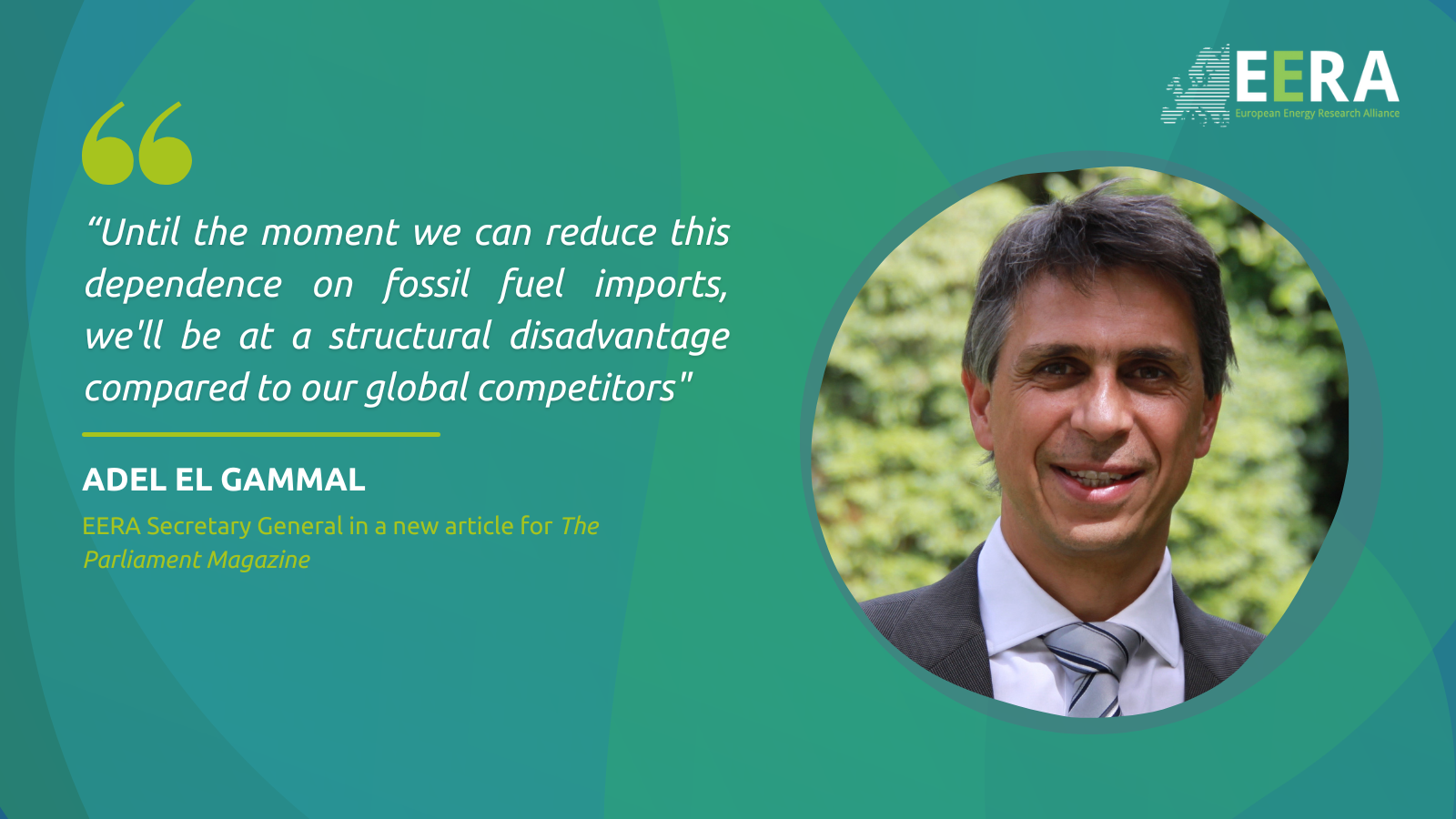In an interview published by The Parliament Magazine on April 29, Adel El Gammal, Secretary General of the European Energy Research Alliance (EERA), contributed with his perspective to a debate on the European Union’s efforts to reduce its energy dependency on Russian fossil fuels.

In a new article, the Parliament Magazine retraces the key steps taken by the EU since Russia's invasion of Ukraine in 2022, which notably prompted the Union to impose sanctions on Moscow. This critical moment compelled the EU to confront its overreliance on foreign energy sources and reignited debate among member states about the need for a European Energy Union.
Three years after the invasion, the EU has made considerable steps in diversifying its energy sources. Emergency measures, such as the REPowerEU programme, were launched for the first time to reduce dependency on Russian energy. While some short-term goals have been achieved, the EU is now pushing for a complete decoupling. This is being pursued through the revived 2015 Energy Union Strategy of the Juncker Commission, as well as new initiatives like the Affordable Energy Action Plan, proposed within the Clean Industrial Deal, aiming to provide European consumers with secure, affordable, and sustainable energy.
The urgency of these reforms across the EU has been further underscored by recent events, including widespread blackouts in Spain and Portugal, as well as geopolitical pressures coming from U.S. President Donald Trump to purchase American LNG exports in exchange for easing tariffs.
Against this backdrop, El Gammal emphasised in the interview that until ''we can reduce this dependence on fossil fuel imports, we'll be at a structural disadvantage compared to our global competitors.” Currently, around 58% of the EU's energy is imported, with fossil fuels, especially natural gas, making up the bulk. Additionally, new deals suggest further European reliance on fossil fuels rather than a move towards phasing it out, with the EU turning to countries such as Azerbaijan and Qatar to reduce dependence on Russia.
However, the road to a unified energy policy is filled with many challenges. As the article points out, divergent national positions and fragmentation between member states pose a significant obstacle. This notably represents a fundamental structural issue according to El Gammal: “Energy is not a Union competency, which makes it extremely difficult, and that's the reason why we see that the member states have very different approaches to energy and, as a consequence, also to the transition.”
Ultimately, to achieve long-term energy independence and security in Europe, the need to invest in the clean energy transition emerges as an important and viable solution, one strongly supported by El Gammal and increasingly embraced within the EU.
“We're in a position where probably we'll be the most advanced continent in terms of renewable penetration,” - Adel El Gammal, EERA Secretary General.
Read the full article here.